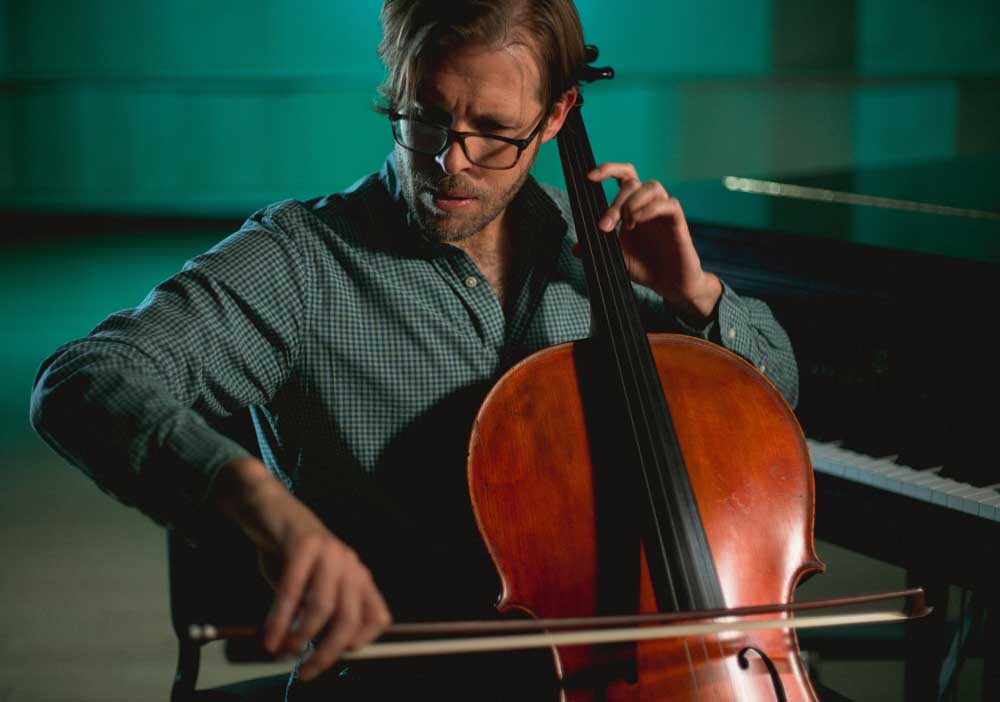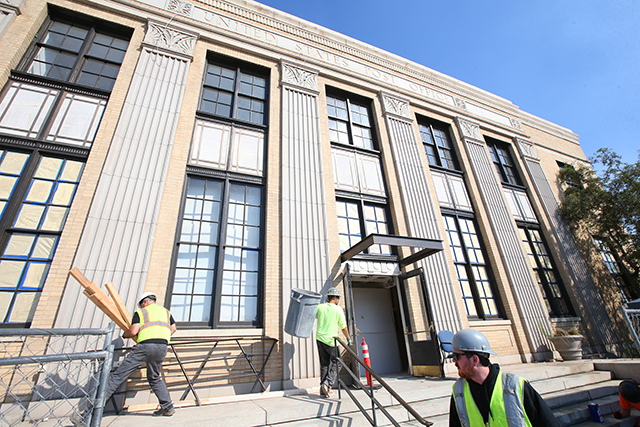October a busy month for haunted attraction composer
Published 2:30 am Thursday, October 22, 2020

- Bend composer Chris Thomas
Bend composer Chris Thomas has had a busy 2020. At any given time, Thomas, composer of 2019’s “Malheur Symphony,” has had multiple projects in the works, but this fall, things have lined up such that a few are coming together in close succession.
“I’m pretty secretive here in Bend. I don’t really know many people, I just hole up in a little studio and write music for theme parks in different parts of the world or these films out of Los Angeles,” Thomas said referring to his company, Chris Thomas music, which is headquartered there.
Trending
The composer is rather shy and humble. However, his busy schedule and growing track record can do the boasting on their own. Take the past week, for example.
On Wednesday, the short film “Imagine Symphony Live,” a sort of love-letter to future audiences from filmmaker Evan Sigvaldsen, features Thomas’ music in a sweeping sonic tour of the state performed by the Central Oregon Symphony, made its YouTube Live debut.
Friday saw the release of “Don’t Look Back,” one of two films Thomas’ music shows up in this fall. Unfortunately, due to distribution details still being worked out for one of them, he could only freely talk about was “Don’t Look Back,” written and directed by Jeffery Reddick, creator of the “Final Destination” horror franchise.
The film arrived in a limited number of theaters and on demand last Friday, and the album version of the score dropped on Tuesday. Though not exactly a critical darling — it has a 50 percent on Rotten Tomatoes — “Don’t Look Back” is among the few films to see released at a time bigger films such as “Wonder Woman 1984” and “Death on the Nile” saw their October release dates pushed back due to COVID-19.
Its writer and director Reddick being behind “Final Destination,” his reputation precedes him.
“All the buzz around (“Don’t Look Back”) is kind of falling into the horror category. I would say it’s more of a mystery-thriller,” Thomas said last week. “The movie’s much more of a drama about this young woman with a difficult past. (She) is among one of several people who witness a brutal attack in a park, and everybody freezes and does nothing — this sort of bystander syndrome.”
Trending
Prior to becoming involved with the project, Thomas, too, considered the project to be in the horror-slasher category, which he usually avoids as a composer because, “they can become very creatively uninteresting,” he said.
“I wasn’t really sure why they would want me to do this. I’ve tried to make more of a name for myself as a real lyrical and melodic orchestral drama composer,” Thomas said.
Then Reddick called him and made a pitch about why he wanted Thomas to do the music.
“He was like, ‘No, this isn’t “Final Destination.”’ He was like, ‘What I’m looking for is more of a timeless orchestral drama score. … This movie is so much more about the heart of our lead characters than it is about anything spooky. You’re going to get to write some fun, spooky stuff, but it’s definitely an orchestral, dramatic soundtrack. That’s why I would like you to do this one.’”
Thomas then spent a week on the set and took a shine to the cast, crew and producers.
“Anymore, that’s usually a green light to take a project,” he said. “I’ve been involved in good films (where) I was highly uncomfortable with the people I was working with, and it was like pulling teeth getting the score done. But in this case, it was a big family effort, and it was just nothing but fun.”
Every film has unique needs, but with a thriller, those needs are, Thomas said, “often related to a mystery, and there’s a lot of problem-solving and quiet moments where you’re building tension. You can’t stomp all over that.” While it’s a music-heavy film, it also has plenty of what he calls “coasting music.”
That’s where he asks and answers questions such as, “Do I need to ramp up a little more tension than the picture shows, or do I need to dissipate the flow of time altogether?”
The other film that should soon see the light of day — or should that be dark of theaters? — is more of a straight drama, a character study with some romance, and “its score (is) front and center. They even conformed several sections of the movie just to let me write music more freely,” Thomas said.
“It was more like I was writing a violin concerto than I was a film score. And the more we were writing for this other film, the more they realized, ‘We’re going to change the edit. … Let’s stop trying to hit all these moments. Let’s get takes of this, just conduct it freely, and let the music, with the solo violin, just flow with the orchestra as the music needs to. The more we kept doing that, the more they kept rearranging the film around it,’” he said.
Thomas said that every film score composer has their own approach to scoring a film, and his preference is to avoid seeing a script early on.
“Some composers like to get their mitts in really early in the process, and I avoid that at all cost,” Thomas said. “I always find that when I read a script, my imagination fills in everything that’s going to be in the movie.”
That early vision of his own only leads to problems once the director begins shooting.
“What the director sees and ends up shooting is nothing like it. The rhythm of the edit is totally different, the feel of the characters, the look of everything, the depths of the scope and the image isn’t what I wasn’t expecting. So then I have to break away from all my preconceived ideas,” he said.
Just as awkward is when he tries to prevent such problems whenever he takes a gig with a director who doesn’t know his preference.
“I have to do this thing where I’m like, ‘You’re going to hate me for saying this, but you have to hear me out. Please don’t take this personally. I will not read the script,’” he said.
Rather, Thomas likes to see a rough edit of the film, then form ideas.
“Met me watch the movie and react to it as the movie will truly be, and then let me pull ideas from what the real film is, and then nine out of 10 times, I’ll nail it,” he said.
By the way, the composer of “Don’t Look Back” happens to have a new Halloween album out. In September, Thomas released his annual Halloween album, available at christhomasmusic.com or at his Bandcamp, musicforhaunts.bandcamp.com. The album’s title is “Hush” this year.
“Every year, I have a new Halloween album, because I tend to do a lot of haunt attraction work at Universal or Knott’s Berry Farm or Dreamland over in England. They’re ‘Screamland’ in October,” he said, laughing.
At some point before October yields to November, Thomas may even promote “Hush.”
“I have the movie soundtrack launching right after the movie launches. We’re going to be doing that for a week. Then right before Halloween, (publicity is) going to be like, ‘Oh, by the way, the composer of the film happens to have a Halloween album right now,” Thomas said. “It’s a lot of stuff for me this month, but I do have a spooky new album.”








